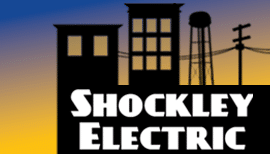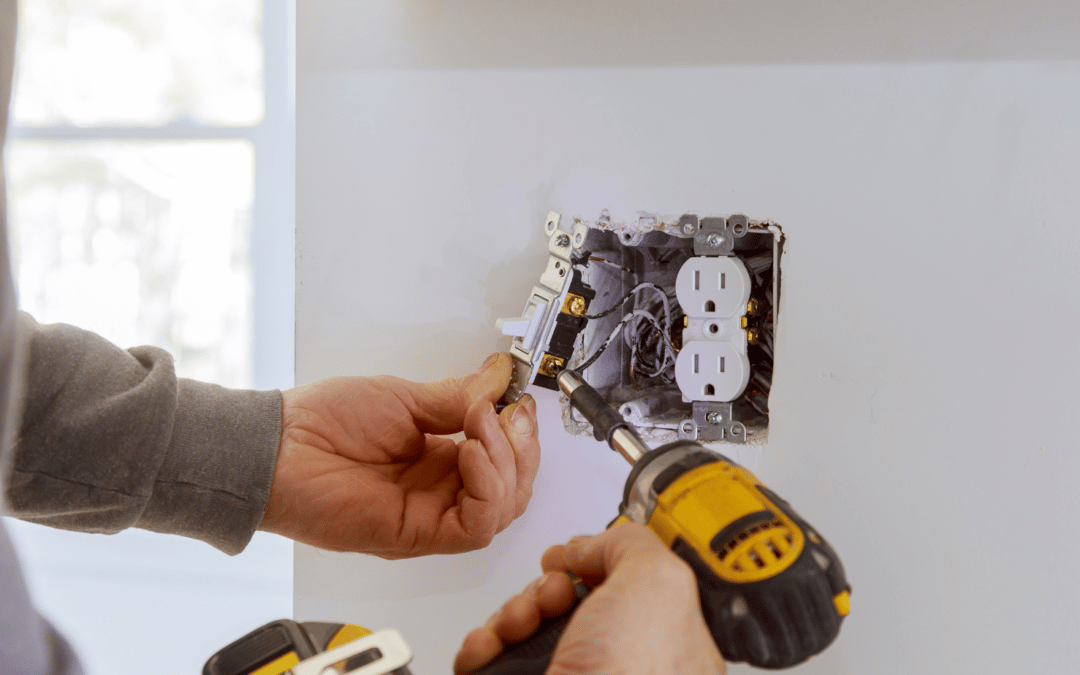Most homeowners rarely think about the electrical panel that supplies their homes with power unless there’s a problem, like the occasional appliance that trips a circuit breaker. But for people with older homes or those wanting to sell or insure their homes, it’s a wise move to determine if the electrical panel needs to be upgraded or replaced.
There are several reasons why this is important, and the top of the list is, as always, safety.
What is an electrical panel?
But first, let’s talk about what an electrical panel is. Homeowners are usually most familiar with the circuit breaker panel, which is where we go to “flip” the breaker when it is tripped by a demand for electricity that exceeds the circuit capacity. This restores power to the circuit and the appliance we want to use. The circuit breakers are part of the electrical panel, but they’re not the same.
Electrical panels are the steel service boxes that contain your main power line and distribute electricity to circuits throughout your home. Inside the breaker box, the main panel breakers serve as a barrier of safety between the source wires that come from the electrical meter and the home wiring.
Like everything else about a house, electrical panels have a lifespan (25-40 years is typical) and may need to be replaced at some point. Outdated and recalled electrical panels pose a serious fire risk, which is why they can prevent you from obtaining or maintaining homeowners’ insurance or cause your home to fail an inspection.
6 Reasons To Replace Your Electrical Panel
Any of the following six reasons should prompt a call to a professional electrician to determine if you need to replace your home’s electrical panel.
1. You notice a safety issue
Electrical issues inside the panel box can cause a fire that could destroy your home and put your family at risk. Never wait to address a safety issue. If you smell something burning or have any of the following issues with your electrical panel, call a professional electrician immediately.
- Rust or corrosion.
- Evidence of melting.
- Damaged or frayed wiring.
- Poor panel access.
- Nearby water or condensation.
- Popping or crackling noises.
- Tingles or charges when you touch the panel.
2. Your electrical panel has been recalled by the manufacturer
One of the biggest reasons to consider replacing your home’s electrical panel is because yours is considered out of date or was involved in a recall. If you have any of these brands of electrical panels in your home, you should have it replaced as soon as possible:
- Federal Pacific Electric (FPE) Stab-Lok panels. FPE panels were popular in the 1950s through 1990. Stab-lok panels can fail to trip when a circuit is overloaded, causing the system to overheat and potentially catch on fire. While FPE Stab-Lok panels were never actually recalled by the US Consumer Product Safety Commission (CPSC), most electricians recommend removing them.
- Zinsco panels, also known as GTE Sylvania-Zinsco panels. These panels were often used in homes built or updated in the 1970s and have design flaws that can create a fire hazard. Additionally, these panels can continue to conduct electricity even when the breaker appears to be off. GTE Sylvania purchased Zinsco in 1973, so look for panels under both brand names.
- Challenger panels made by Challenger Electrical Equipment Corp or Eaton/Cutler-Hammer. Challenger electrical panels were installed in hundreds of thousands of homes in the 1980s and early 1990s, and a 1988 recall focused on panels with a mechanical component that can detach leading to overheating, melting and fire. Problems continued after Eaton/Cutler-Hammer purchased Challenger, and in 2014, 1,000 panels were recalled because their easily accessed components presented a shock risk.
- Pushmatic. These panels were popular from 1950 through 1980. During that time, the Pushmatic system wasn’t known to be a fire hazard, but it’s now considered outdated and should be replaced.
3. You’re having issues with your circuit breaker
If you constantly have to reset the circuit breakers when using an appliance like a hairdryer, it’s a red flag that your electrical panel is not configured sufficiently to meet the power demand.
If you try resetting the breaker and the power still doesn’t return, the electrical panel is most likely faulty. And if you are in a very old home with fuses instead of breakers, it’s probably way past time to upgrade!
4. Your electrical needs change
Anytime you add or replace appliances like a refrigerator or stove, check to be sure your electrical panel is configured to meet your needs. While newer appliances are typically more energy-efficient than older ones, adding something like a second refrigerator could push the circuit beyond its threshold.
If you’re enlarging or renovating your home, your electrical panel may need to be upgraded to handle the extra load you’re introducing.
5. You’re listing your home for sale
When you’re about to go under contract, you don’t want to be caught by surprise by a home inspector insisting that you need to replace an old or faulty electrical panel. If this could be an issue, it’s a good idea to replace the panel proactively and let your buyers know this recent upgrade is one less worry they need to consider.
6. Your insurance requires it
If you have a particularly old electrical panel or one that incorporates fuses, your insurance company may demand that you upgrade or pay an increased rate. Some insurance companies may even threaten to drop your coverage until the panel has been upgraded to one that complies with current safety regulations.
Time for a new electrical panel?
Electrical issues should not be ignored since they can be a serious threat to your family. If you suspect your electrical panel may need to be upgraded or replaced, contact a professional electrician to protect your family and your investment in your home.
Check out our blog How Do I Find a Qualified Local Electrician to learn more.
How Can Shockley Electric Help?
At Shockley Electric, we address important home safety issues such as power surges, faulty electrical wiring and potential fire hazards when we do electrical preventive maintenance in homes or commercial buildings. We are licensed, trained, and skilled in safety-proofing your home, and we are committed to the safety and well-being of our customers.
If you are experiencing electrical problems in your home or aren’t sure if your home is protected from electrical hazards, schedule an in-home estimate or appointment with us today. Fill out our form or call us now for a free estimate!

